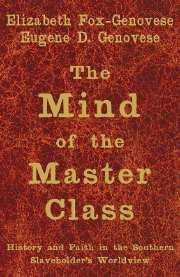Book contents
- Frontmatter
- Contents
- Preface
- List of Abbreviations
- Prologue
- PART ONE CRADLED IN THE STORMS OF REVOLUTION
- PART TWO THE INESCAPABLE PAST
- PART THREE ANCIENT LEGACIES, MEDIEVAL SENSIBILITY, MODERN MEN
- PART FOUR A CHRISTIAN PEOPLE DEFEND THE FAITH
- 13 A Christian People
- 14 Unity and Diversity among the Faithful
- 15 War over the Good Book
- 16 Slavery: Proceeding from the Lord
- 17 The Holy Spirit in the Word of God
- 18 Jerusalem and Athens – Against Paris
- 19 Serpent in the Garden: Liberal Theology in the South
- 20 Theopolitics: Golden Rule, Higher Law, and Slavery
- Coda: St. John of Pottawatamie
- PART FIVE AT THE RUBICON
- Epilogue: King Solomon's Dilemma
- Supplementary References
- Index
Coda: St. John of Pottawatamie
Published online by Cambridge University Press: 05 June 2012
- Frontmatter
- Contents
- Preface
- List of Abbreviations
- Prologue
- PART ONE CRADLED IN THE STORMS OF REVOLUTION
- PART TWO THE INESCAPABLE PAST
- PART THREE ANCIENT LEGACIES, MEDIEVAL SENSIBILITY, MODERN MEN
- PART FOUR A CHRISTIAN PEOPLE DEFEND THE FAITH
- 13 A Christian People
- 14 Unity and Diversity among the Faithful
- 15 War over the Good Book
- 16 Slavery: Proceeding from the Lord
- 17 The Holy Spirit in the Word of God
- 18 Jerusalem and Athens – Against Paris
- 19 Serpent in the Garden: Liberal Theology in the South
- 20 Theopolitics: Golden Rule, Higher Law, and Slavery
- Coda: St. John of Pottawatamie
- PART FIVE AT THE RUBICON
- Epilogue: King Solomon's Dilemma
- Supplementary References
- Index
Summary
For they have sown the wind, and they shall reap the whirlwind: it hath no stalk: the bud shall yield no meal: if so be it yield, the strangers shall swallow it up.
—Hosea, 8:7John Brown invoked private judgment and higher law to justify his slaughter of defenseless proslavery farmers in Kansas in 1856, while the abolitionist Charles Stearns called for the killing of proslavery settlers he described as wild beasts. When in 1859 Brown seized a federal arsenal at Harper's Ferry, Virginia, the Baptist Reverend Thornton String fellow, speaking for southern public opinion, declared Brown's bloody course the logical outcome of the abolitionists' understanding of the Golden Rule and higher law. Brown's rampage horrified most antislavery Northerners, who feared that – moral revulsion aside – his fanaticism and brutality discredited their cause. Hatred of slaveholders, nonetheless, mounted in the North, culminating in the glorification of Brown as martyr after Harper's Ferry and the fable that the Slave Power had fabricated the massacre at Pottawatomie.
Southerners themselves had mixed reactions to Harper's Ferry. A great many cried, in effect, that they knew the abolitionists would murder their wives and children, for that is what those thinly disguised infidels understood by the Golden Rule. Yet many were shocked. Perhaps they had not entirely believed their own direst warnings. Constance Cary Harrison of the slaveholding elite was among the many Virginians who “devoured” Uncle Tom's Cabin, and she may also have had company in thinking that Brown's raid might be “God's vengeance for the torture of such as Uncle Tom.”
- Type
- Chapter
- Information
- The Mind of the Master ClassHistory and Faith in the Southern Slaveholders' Worldview, pp. 636 - 646Publisher: Cambridge University PressPrint publication year: 2005



